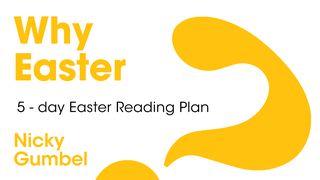30 Days in the PsalmsSýnishorn

Day #25: Psalm 108
Book V of the Psalter opens (Psalm 107) with an anonymous prayer of thanksgiving for God’s past acts of deliverance. This is the basis for the confident expectation of rescue in the present. Then we turn to a trio of psalms associated with David (Psalm 108–110). Although it quickly becomes clear that there is an urgent need for God to act on behalf of his people, the predominant note in Psalm 108 is praise rather than petition. It opens with confident hope (v. 1), and the words “praise, sing, sing praise” are repeated four times in the opening verses.
At verse four, we find the reason for the confident outpouring of praise: “For your faithful love is higher than the heavens, and your faithfulness reaches to the clouds” (CSB). Two specific petitions flow out of that praise, and their order is important. First, the request is for God’s own honor to be seen in all the earth: “Be exalted and glorified, O God!” (v. 5). Part of the way that will happen is for God to rescue his people—“the ones you love” (v. 6)—so that the whole world will see his faithfulness and faithful love.
In verses 7–9, the poet remembers God’s own words, with their implicit promises. “The land of Israel and its people belong to me,” the Lord declares. And when he remembers that special relationship, God says, “I will celebrate!” This sounds a lot like the loving and faithful Father who shows up in the three parables in Luke 15—he rejoices over the wayward children who are found, throwing extravagant parties to celebrate their return, and he longs to do the same for those who may not have wandered far with their feet, but whose hearts are distant from him. Restoration is a central part of God’s actions on behalf of his people.
In the concluding paragraph of the prayer, the psalmist turns back to the urgent situation of his people, which seems to belie the confidence expressed in verses 1–6 and the promises celebrated in vv. 7–9. If they set their eyes solely on their circumstances, these can be interpreted as God’s absence rather than his presence, as his rejection rather than his faithful love. But the psalmist refuses to allow his people to keep their gaze on their circumstances, returning them to confident petition: "God, help us against our adversaries, because we need more than human help” (v. 12). And he concludes with expectant rejoicing: “With God we will perform valiantly; he will trample our foes” (v. 13, CSB).
Today is a good day to release your anxiety-producing circumstances into the hands of the good Father who loves you and who will act faithfully on your behalf!
Ritningin
About this Plan

Most of Scripture is God’s Word to human beings, but the Book of Psalms records human speech to God. These prayers and songs demonstrate the determination of people of faith to remain connected to God, regardless of their circumstances. Confession, lament, pleading, thanksgiving, praise—all the elements of our communication with God are present. The 150 Psalms in the collection are divided into 5 “books.” During these 30 days, we’ll pray through 6 psalms from each book. Some will be very familiar, others perhaps less so; all will direct our gaze to the God who loves us.
More








